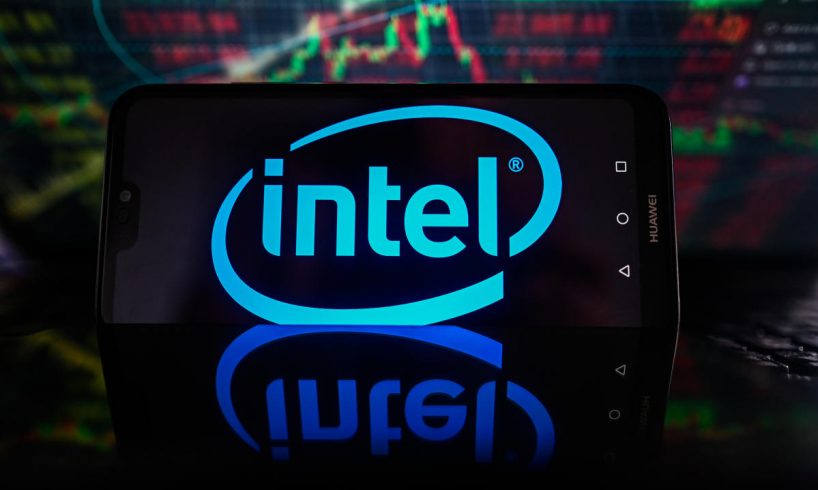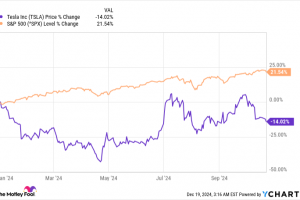
Intel (INTC) announced its third quarter earnings after the bell on Thursday, beating analysts’ expectations on the top and bottom lines and provided Q4 guidance implying revenue growth for the first time since 2020. Shares of the chipmaker jumped more than 7% following the report.
“We delivered a standout third quarter, underscored by across-the-board progress on our process and product roadmaps, agreements with new foundry customers, and momentum as we bring AI everywhere,” Intel CEO Pat Gelsinger said in a statement. “We continue to make meaningful progress on our IDM 2.0 transformation by relentlessly advancing our strategy, rebuilding our execution engine and delivering on our commitments to our customers.”
Intel’s Q3 revenue came in at $14.2 billion with adjusted earnings per share (EPS) of $0.41. Analysts were expecting revenue of $13.5 billion and adjusted EPS of $0.31.
Intel’s Client Computing revenue reported $7.9 billion in revenue, compared to expectations of $7.4 billion. Intel’s data center and AI business, meanwhile, brought in $3.8 billion. Wall Street was anticipating revenue of $3.9 billion. Overall, Intel’s revenue was down 8% year over year, though that’s a stark contrast to the same time last year when revenue was off 15.2%.
Intel, like its fellow chipmakers, is looking to capitalize on a rebound in a PC market that’s been hamstrung by declining sales over the last two years. And while the latest numbers are still down from the same period last year, they’re an improvement from Intel’s second quarter, when it reported a loss of $2.8 billion.
The PC market’s struggles can be traced back to the COVID pandemic when consumers purchased large numbers of laptops and desktops for both work and play. That, however, meant they didn’t need to go out and buy new machines for quite some time. Add to that inflationary pressures and high interest rates, and PC sales plummeted.
According to research firm Gartner, PC shipments declined a stunning 28.5% in January, the steepest drop the company has recorded since it began tracking PC shipments in…
..






